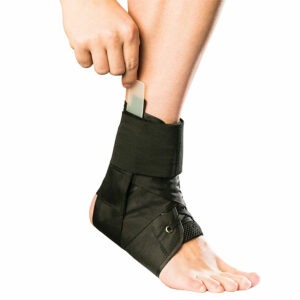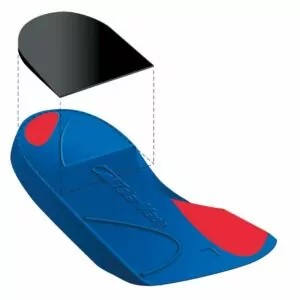Antero-Lateral Ankle Impingement
Updated:
(Also known as Antero-Lateral Impingement Syndrome)
What is antero-lateral ankle impingement?
The talus is a small bone of the ankle responsible for transferring weight bearing forces from the shin to the foot (figure 1).
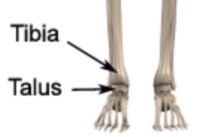
Figure 1 – Relevant Anatomy for Antero-Lateral Ankle Impingement
During the movement of ankle dorsiflexion (figure 2) and ankle eversion (figure 3), the bottom of the shin bone approaches the talus. This places compressive forces on the structures at the outer / front aspect of the ankle joint. If these forces are excessive or beyond what the ankle can withstand, damage and inflammation of these structures may occur. This condition is known as antero-lateral ankle impingement. Occasionally, bony spurs can also form at the outer / front aspect of the ankle joint which may contribute to the problem.
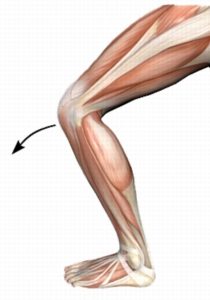
Figure 2 – Ankle Dorsiflexion
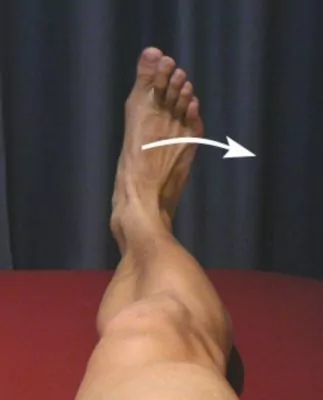
Figure 3 – Ankle Eversion
Causes of antero-lateral ankle impingement
Antero-lateral ankle impingement may occur following repeated ankle sprains or following a major sprain. It may also occur following activities requiring repeated forced dorsiflexion (figure 2)
Signs and symptoms of antero-lateral ankle impingement
Patients with this condition typically experience pain at the outer / front aspect of the ankle that increases with excessive dorsiflexion or weight bearing activity such as running.
Treatment for antero-lateral ankle impingement
It is recommended that patients with antero-lateral ankle impingement undergo a physiotherapy program as the first line of treatment. One of the key components of this program is that the patient rests sufficiently from any activity that increases their pain until they are symptom free. This allows the body to begin the healing process in the absence of further tissue damage. Once the patient can perform these activities pain free, a gradual return to activity is indicated provided there is no increase in symptoms.
Ignoring symptoms or adopting a ‘no pain no gain’ attitude is likely to aggravate the condition and may lead to the problem becoming chronic. Immediate appropriate treatment is essential to ensure a speedy recovery.
Patients with this condition should follow the R.I.C.E. regime in the initial phase of injury. The R.I.C.E regime is beneficial in the first 72 hours following injury or when inflammatory signs are present (i.e. morning pain or pain with rest). The R.I.C.E. regime involves rest from aggravating activities (crutches may be required), regular icing, the use of a compression bandage and keeping the leg elevated. Anti-inflammatory medication may also significantly hasten the healing process by reducing the pain and swelling associated with inflammation.
A graduated and pain-free flexibility, strength and return to activity program under direction from a physiotherapist is vital to ensure an optimal outcome.
Alternative exercises placing minimal weight bearing forces through the ankle should be performed to maintain fitness such as swimming, cycling, and water running.
Contributing factors to the development of antero-lateral ankle impingement
There are several factors which can predispose patients to developing antero-lateral ankle impingement. These need to be assessed and corrected with direction from a physiotherapist. Some of the factors which may contribute to the development of this condition include:
- joint stiffness or swelling
- muscle tightness
- poor foot biomechanics
- inappropriate training (including technique, footwear or training surfaces)
- inadequate rehabilitation following previous injury
- a history of ankle trauma
Physiotherapy for antero-lateral ankle impingement
Physiotherapy treatment is vital to hasten the healing process and ensure an optimal outcome in all patients with this condition. Treatment may comprise:
- soft tissue massage
- joint mobilisation
- electrotherapy (e.g. ultrasound)
- anti-inflammatory advice
- stretches
- ankle taping
- ankle bracing
- the use of crutches
- the use of heel wedges
- ice or heat treatment
- exercises to improve flexibility, strength and balance
- education
- activity modification advice
- biomechanical correction
- a gradual return to activity program
Other intervention for antero-lateral ankle impingement
Despite appropriate physiotherapy management, some patients with this condition do not improve. When this occurs the treating physiotherapist can advise on the best course of management. This may involve investigations such as an X-ray, MRI or CT scan, pharmaceutical intervention, corticosteroid injection or review with a specialist who will advise on any procedures that may be indicated to improve the condition. Occasionally, surgical intervention may be indicated to remove the bony spur or damaged tissue. Review with a podiatrist for appropriate footwear advice and possible orthotics may also be indicated.
Exercises for antero-lateral ankle impingement
The following exercises are commonly prescribed to patients with antero-lateral ankle impingement. You should discuss the suitability of these exercises with your physiotherapist prior to beginning them. Generally, they should be performed 1 – 3 times daily and only provided they do not cause or increase symptoms.
Foot and Ankle Up and Down
Move your foot and ankle up and down as far as possible and comfortable without pain (figure 3). Repeat 10 – 20 times provided there is no increase in symptoms.
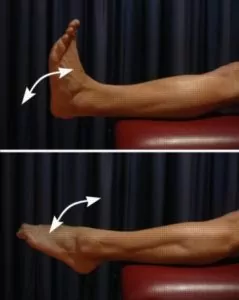
Foot and Ankle In and Out
Move your foot and ankle in and out as far as possible and comfortable without pain (Figure 4). Repeat 10 – 20 times provided there is no increase in symptoms.
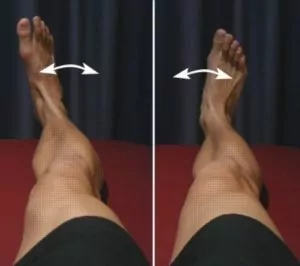
Foot and Ankle Circles
Move your foot and ankle in a circle as large as possible and comfortable without pain (figure 5). Repeat 10 – 20 times provided there is no increase in symptoms. Perform the exercise clockwise and counter-clockwise.
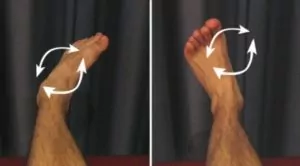
Kneeling Stretch
Begin in four point kneeling (i.e. on your hands and knees) on a flat surface. Keep your knees and ankles together, toes pointed. Gently take your weight back onto your ankles until you feel a stretch at the front of your ankles or shins (figure 6). Hold for 15 seconds 4 times at a mild to moderate stretch pain-free. This exercise can be progressed by placing a rolled towel under your feet as demonstrated.
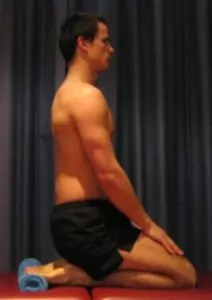
Find a Physio for Antero-lateral Ankle Impingement
Find a Physiotherapist in your local area who can treat this condition.
More Information
- View more Ankle Flexibility Exercises.
- View more Ankle Strengthening Exercises.
- View Balance Exercises.
- View our Ankle Diagnosis Guide.
Physiotherapy products for Antero-lateral Ankle Impingement
Some of the most commonly recommended products by physiotherapist for patients with this condition include:
To purchase physiotherapy products for Antero-Lateral Ankle Impingement click on one of the above links or visit the PhysioAdvisor Shop.

Link to this Page
If you would like to link to this article on your website, simply copy the code below and add it to your page:
<a href="https://physioadvisor.com.au/injuries/ankle/anterolateral-ankle-impingement”>Antero-Lateral Ankle Impingement – PhysioAdvisor.com</a><br/>PhysioAdvisor offers detailed physiotherapy information on antero-lateral ankle impingement including: causes, symptoms, diagnosis, treatment, exercises, physiotherapy products and more...
Return to the top of Antero-Lateral Ankle Impingement.

